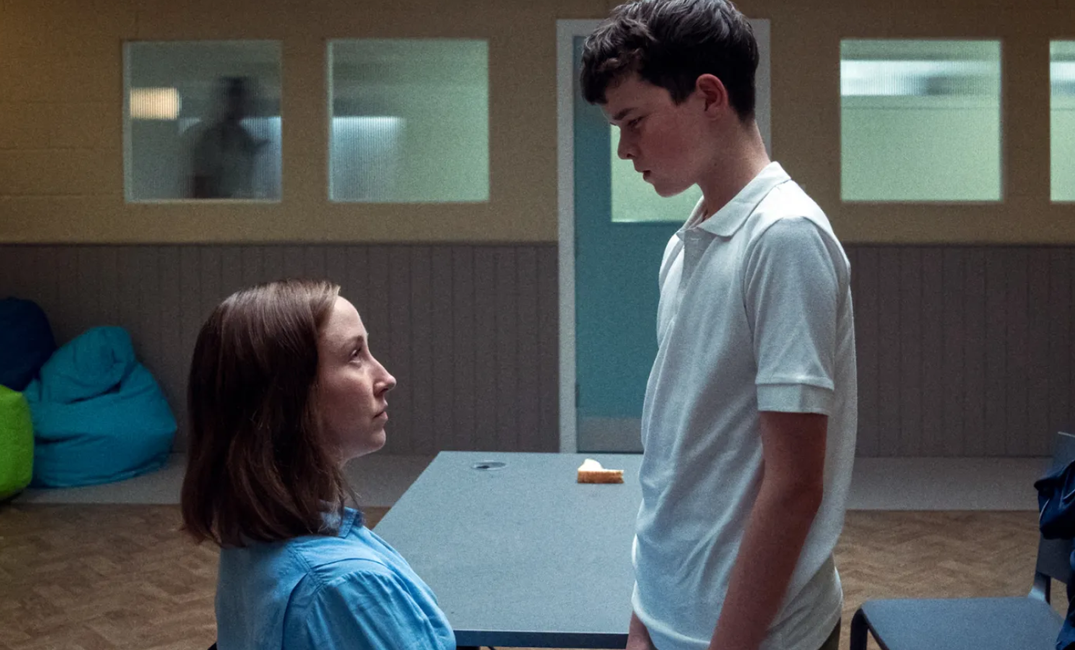Nasra Ayub
I always enjoy a good thriller drama from Netflix, especially when an actor whose work I admire is involved both on and off-screen. That’s why I was eager to watch Adolescence, the new hit series co-created by the brilliant Stephen Graham. The show follows Jamie, a 13-year-old boy accused of murdering a female classmate. Initially, I thought this would be a classic whodunnit—a suspenseful mystery leading to a dramatic reveal in the final episode. Oh, was I wrong.
From the very first episode, Adolescence gripped me—not just for its bold storytelling and its stunning use of one-shot takes—but for its chilling exploration of incel culture and toxic masculinity. Stephen Graham delivers a gut-wrenching performance as Jamie’s father, while first-time actor Owen Cooper stuns as the troubled young boy. Across its four episodes, the series dives into the “manosphere,” an online subculture of men—often heterosexual—who feel rejected by women and respond with deep-seated resentment, entitlement, and, in extreme cases, violence.
The show doesn’t just allude to these dangers—it names them. A key figure in the manosphere, Andrew Tate, is directly referenced, highlighting his influence on impressionable young boys. Over the last few years, Tate has gained notoriety for spreading misogynistic rhetoric that promotes dominance, aggression, and disdain for women. Adolescence makes it clear: this ideology is not harmless. It can, and does, escalate into real-world violence.
A timely wake up call
Adolescence could not have arrived at a more crucial moment. In 2023, the UK was shaken by the tragic murder of 15-year-old Elianne Andam, who was stabbed by 17-year-old Hassan Sentamu in Croydon. More recently, in January 2024, Axel Rudakubana, 17, was sentenced to a minimum of 52 years for fatally stabbing three young girls at a Taylor Swift-themed event. Despite the clear gendered nature of these crimes, public discourse largely framed them as knife crime rather than misogyny-fueled violence.
And these aren’t isolated incidents. Violence against women and girls (VAWG) in the UK has reached alarming levels. In 2021, Sarah Everard was kidnapped and murdered by a serving Metropolitan Police officer, an event that sparked national outrage. That same year, 28-year-old primary school teacher Sabina Nessa was killed while walking to meet a friend. A recent Femicide Census found that, on average, a woman is killed by a man every three days in the UK—often by someone she knows.
The numbers don’t lie. Meanwhile, studies have shown that sexism and misogyny start early— a 2021 Ofsted review of sexual abuse in schools and colleges highlighted that nearly 90% of girls and almost 50% of boys reported experiences such as being sent explicit pictures or videos, or being subjected to sexist name-calling.
Despite these horrifying realities, violence against women is still treated as a secondary issue—something tragic but inevitable, rather than something preventable. Adolescence forces us to confront the uncomfortable truth: misogyny is not just an attitude, it’s a pipeline that leads to real violence.
The digital disconnect
One of the most striking moments in Adolescence comes in Episode 2 when the series explores the chaotic, unprepared school environment. The episode highlights how disconnected some parents are from the struggles of the digital age, where the complexities of social media, peer pressure, and online identities weigh heavily on young minds.
The lack of intervention, awareness, and action from both teachers and parents is painfully evident. Jamie’s parents, in particular, remain unaware of his struggles until it reaches a breaking point. It isn’t until the series’ final episode that they have an honest, raw conversation about their failure to recognise the signs and the things they could have done differently.
The series paints a sobering picture of how easy it is for young people’s emotional battles to go unnoticed in a world that is quickly evolving and growing more complex, leaving them to navigate the challenges of adolescence largely on their own.When boys lack positive representations of healthy masculinity in mainstream media, and when they aren’t given the tools to process their emotions in a constructive way, we risk losing them to dangerous ideologies. Adolescence forces us to confront the uncomfortable truth: misogyny is not just an attitude, it’s a pipeline that leads to real violence.
Beyond “boys will be boys”
The conversation around male rage, youth radicalization, and the "boys will be boys" mentality is long overdue. Adolescence is more than just a gripping thriller—it’s a wake-up call. A call to rethink how we talk about violence against women and girls, not just as a safety issue, but as a conversation about masculinity, gender roles, and how young boys are shaped by their environments in today's society. It forces us to confront the uncomfortable truth: unchecked misogyny, when ignored, can manifest into something far more dangerous.
Watching Adolescence made me feel something I have felt many times before—frustration. Frustration at the way our media and government treat gendered violence as an isolated issue rather than part of a larger systemic problem. But it also left me with a sense of urgency. We cannot afford to turn away. This is a conversation we must have, and we must have it now.
Thanks for reading our article! We know young people’s opinions matter and really appreciate everyone who reads us.
Give us a follow on Instagram and TikTok, and join our Whatsapp Channel to stay up to date with what young people think.

